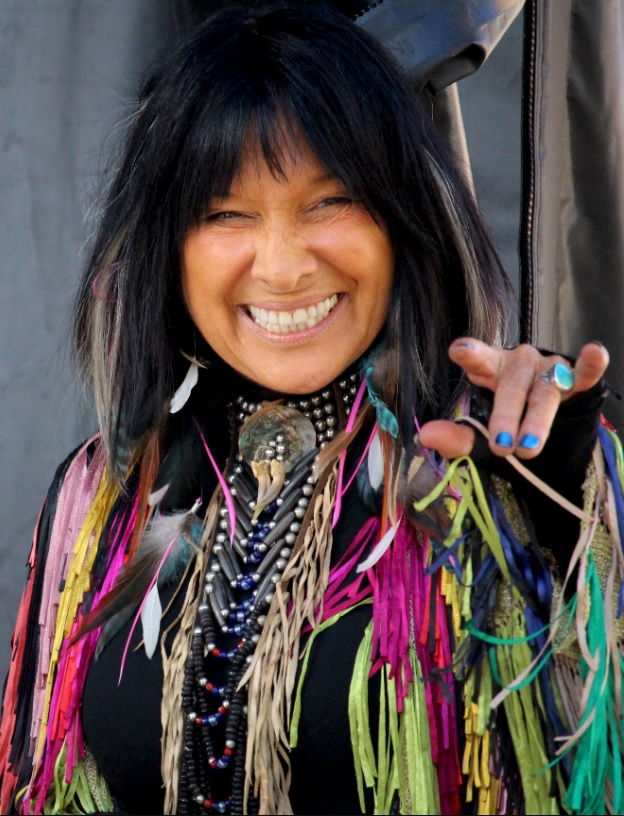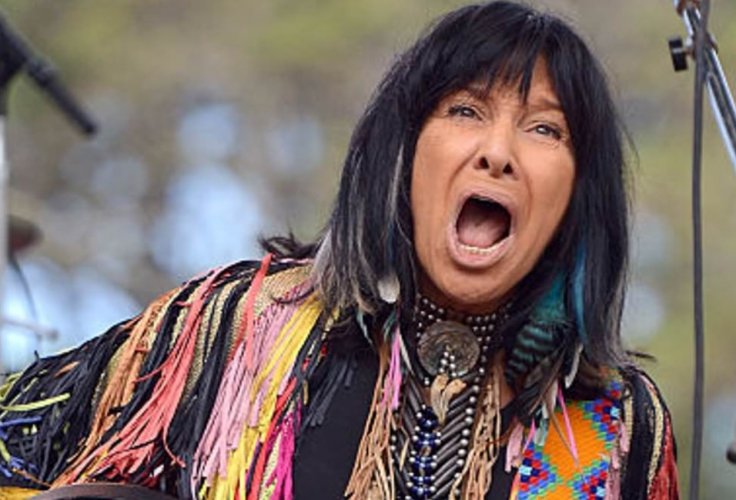Canadian singer Buffy Saint-Marie is facing accusations of faking her Indigenous heritage, as revealed in a groundbreaking feature by the CBC. The report alleges that she was born in Massachusetts to a white family, contradicting her previous claim of being born on an Indian reservation, DailyMail.com, reported.
The report has led to accusations that Sainte-Marie is a "pretendian" — a term coined for people who fake having Indigenous ancestry. Saint-Marie, 82, has been a prominent figure in Canadian folk music and is considered an Indigenous success story. However, the CBC report cites a birth certificate indicating that she was born "Beverly Jean Santamaria" in Stoneham, Massachusetts, to parents of European descent.
Fresh Claims About Her Indigenous Heritage

Saint-Marie has always identified herself as a member of the Cree tribe, maintaining that she was adopted by a white family during her childhood as part of the controversial Sixties Scoop.
This historical event involved the removal of Indigenous children in Canada from their families, placing them into adoption with non-Indigenous parents.

However, members of Saint-Marie's family are now claiming to CBC that she has been dishonest about her heritage, DailyMail.com reported.
CBC also alleges to have unearthed a birth certificate linking Saint-Marie to Massachusetts, where she spent her formative years.
Despite her previous assertion that she was born on the Piapot First Nation reservation near Regina in Saskatchewan and later adopted by the Santamari couple in Massachusetts, the report challenges this narrative.
Saint-Marie has consistently claimed to have rediscovered her Native ancestry later in life and to have been accepted into the community.
Making Her Point Clear
In a Facebook video released this week following CBC's report, Saint-Marie reiterated her Indigenous heritage, insisting that she is a "proud" member of the Native community. She asserted that her adoptive mother provided her with reasons to believe in her Indigenous background, the outlet reported.

Saint-Marie describes the Piapot First Nation as her 'chosen family' in her statements. "They took me in as an adult and claimed me as their own. This has been and always will be my truth," she says in the video.
"There are those who want to question me...for 60 years I have been sharing my story as I know it. I'm an artist, an activist, a mom, a survivor, and a proud member of the native community with deep roots in Canada.
"There are also many things I don't know which I have always been honest about. I don't know where I'm from, where my birth parents are, or how I ended up a misfit in a typical, white, Christian, New England town.
"I realized decades ago I'd never have the answers to these questions," she said.

The CBC article suggests that Saint-Marie's narrative regarding her origins has undergone numerous changes over the years.
Sainte-Marie gained prominence alongside fellow folk singers in the early 1960s and has seen a resurgence in pop culture in recent years due to exhibits, podcasts, and documentaries highlighting her life, legacy, and advocacy for Indigenous rights. In 2021, her image even graced a Canadian stamp.
The potential discrepancy in her heritage, given her significant role within Indigenous communities, particularly in Canada, is perceived as shocking and distressing by community members who feel that their heritage, struggles, and history may have been exploited for her gain.









